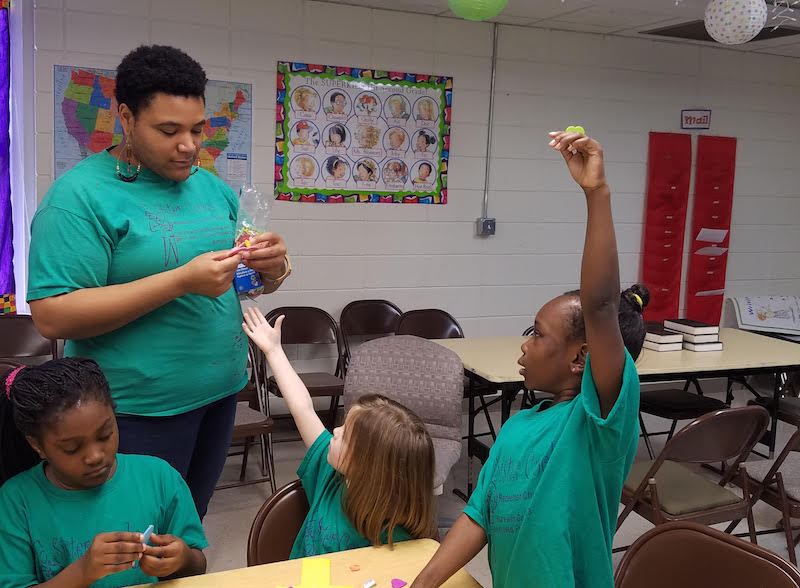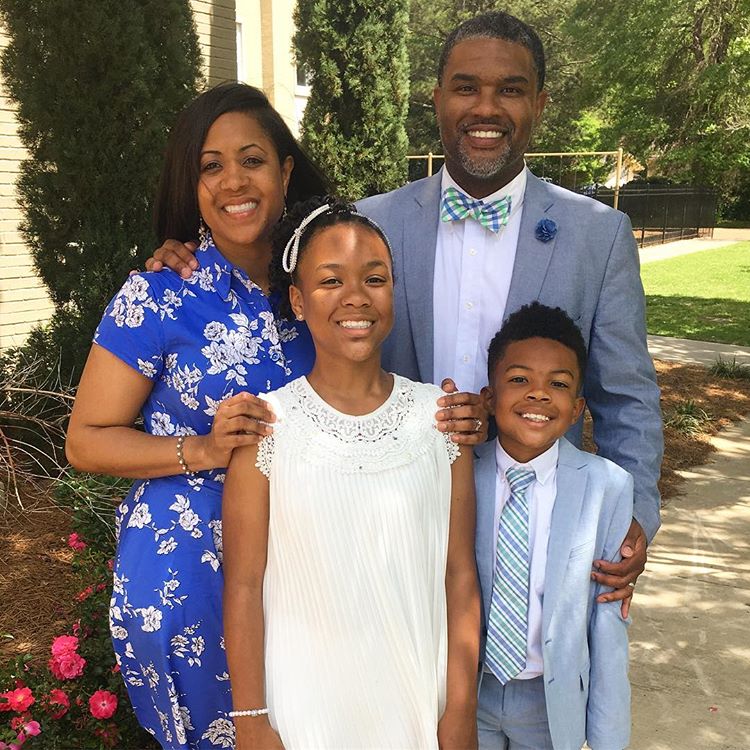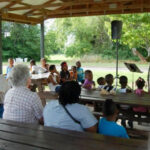Elbert McGowan grew up five minutes from Trinity Presbyterian Church on the north side of Jackson, Mississippi. He passed by it daily. Never once did it cross his mind that one day he’d end up the pastor in that building. In fact, he never even considered entering the door.
That’s because the church was exclusively white, and McGowan is black.
Trinity was born in 1950, one year before 13 parents in Topeka filed what would become Brown v. Board of Education and five years before Rosa Parks would refuse to give up her bus seat. Many leaders of what would become the Presbyterian Church in America (PCA) barred blacks from membership, defended white supremacist organizations, and taught that the Bible opposed interracial marriage and supported segregation.
The past is ugly, so much so that the PCA confessed and apologized for the actions of its leaders even though the denomination wasn’t formed until nine years after the 1964 Civil Rights Act.
Set in an all-white neighborhood in north Jackson, Trinity wasn’t exempt. But as its white neighbors left for the suburbs and black neighbors moved in, Trinity didn’t budge.
One move, one church plant, and two pastors later, McGowan doesn’t just drive past anymore. He pulls open the church doors every day. He has an office and a desk with photos of his family. He runs the meetings; his kids run down the hallways.
And every week, he preaches to a congregation that’s one-third African American. They sing songs found in both Presbyterian and African-American hymnals. The congregation does more hand-raising and clapping than a typical Presbyterian crowd, while the theology is solidly Reformed.
“What the Lord is doing in and through [this church] is nothing short of astonishing,” Reformed Theological Seminary (RTS) chancellor Ligon Duncan wrote. “Only God could accomplish what has been done here.”
Changing Neighborhood
Nearly 70 years ago, Presbyterians built Trinity on the last paved road on the north side of Jackson—the address was 640 East Northside Drive. The neighborhood that sprang up around it was full of small, A-framed, wood-plank houses, tossed up one after another for returning World War II veterans. Trinity was a neighborhood church; membership peaked in 1968.
By the time McGowan was born in 1978, the white residents of Jackson were moving out. In 1960, the city was 36 percent black. Forty years later, it was about 70 percent black; by 2010, it was nearly 80 percent black.
Trinity’s neighborhood was no longer full of white veterans, and attendance was falling. But the church didn’t follow members to the suburbs. Instead, by the late 1990s, Trinity members were doing door-to-door evangelism, running a neighborhood soccer program, and tutoring children after school. They even put pastor Mike Ross’s sermons on the African-American radio channel.
“The Lord kept giving us opportunities,” said Steve Lanier, who was then Trinity’s director of outreach and missions. “In a church of about 400, about 100 of them were involved in outreach every week.”
But even though they were pulling African Americans into church for programs during the week, none came back to worship on Sunday. After years of stretching out, Trinity still didn’t have a single black member.
Then, one Sunday in 2000, Loretta McGowan—desperate for help and half by accident—walked in.
She could not have imagined how that one morning would change the direction of her family—and of the entire congregation.
Breaking the Seal
“My dad had been addicted to crack cocaine most of my childhood,” Elbert McGowan said. His addiction was devastating for his family, both emotionally and financially. Looking for “a place to belong, to be equipped to handle suffering, to be shepherded,” Loretta moved her family through several denominations.
“They were all tied to my mother wanting to be able to cope,” he said. “By the time I left for college, my dad was hitting rock bottom, and she wanted something substantive.”
And then Loretta heard Mike Ross on the radio. She’d listen to him on the hour drive to the factory where she and Elbert Sr. both worked.
She liked Ross. And she knew where his church was. And since he was on the African-American station, she figured he was black. So Loretta decided to visit.
She showed up late, and Lanier, who was ushering, had to send Loretta and her friend up to the balcony, since the seats in the main sanctuary were full.
But it doesn’t take a civil-rights activist to know that sending your only black guests up to the balcony isn’t the most sensitive move. Lanier knew it immediately—“Uh-oh. That ain’t good.”
As soon as the service was over, he raced back to the steps so he could catch them on their way down.
“I want to thank you for coming,” Lanier said.
“Uh-huh,” Loretta answered grimly.
“We don’t seat black people upstairs,” he quickly explained, with a friendly grin. “We seat late people upstairs.”
She started laughing, and so did he. The next week Loretta was back, on time and with Elbert Sr. in tow.
The Conversion of Elbert McGowan Jr.
Loretta’s son, Elbert McGowan Jr., was in college by then, and had been to church “maybe three times in five years.” A student at Alabama A&M University, he joked with his parents about their being the only black members in an all-white church. “It was so foreign,” he said. “It was unheard of.”
But one Sunday when he was home, he went with them. He was impressed with Ross’s preaching, how he stayed tethered to the biblical text.
“What warmed my heart was not only the faithful preaching, but also the holy living,” McGowan said. He knew Trinity had been working with his dad, getting him into a Christian rehab center and drug testing him at church. (Today, Elbert Sr. is a deacon at his son’s church; he also coordinates food ministry and does church’s landscaping. “He’s a new man,” McGowan said. “He’s at this church several times a week serving.”)
“I’ll never forget the pastor’s wife made me a copy of all the tapes from a sermon series he was preaching,” McGowan said. “She mailed them to me with a letter that said, ‘I’m praying for you.’”
He listened to them all.
“Finally, I ended up reading the Bible for myself,” he said. “And I became a believer in my living room in Ohio.”
Sea Changes
McGowan started attending a church in Ohio, where he was working as a mechanical engineer with GE Aviation. It was there he was discipled by several men in the church, and there he learned how to share his faith.
He was relocated to another GE Plant in Madisonville, Kentucky, and heard of a man spending his retirement years doing prison ministry. The man’s eyesight had deteriorated until he could no longer drive himself, so McGowan offered to take him.
They would spend two hours in prison every Tuesday afternoon, evangelizing and discipling. “I saw a lot of men who looked like me and had similar backgrounds,” McGowan said.
He loved the ministry, and he was good at it. Eventually, “I had [my fiancée] and my mom and Steve [Lanier] all in my ear, saying, ‘You should think about ministry.’”
“I’m thinking, I’m about to be a husband,” he said, worried about giving up the financial stability of his job. But his fiancée was game, so in July 2004, just weeks after his wedding, McGowan quit his engineering job and moved to Jackson to attend RTS.
Meanwhile, Trinity was also wrestling with its future. “We had been doing a lot of growing, and we needed to kick our building up a notch,” Lanier said. The church purchased a larger building across the “railroad tracks” of Interstate 55, eight minutes away.
The trouble was, not everybody wanted to leave.
“Some folks said, ‘We’ve invested in this neighborhood for seven years, intentionally engaging it from a Reformed theological perspective,’” Lanier remembered. “We cared about the vacuum we’d leave and what church would occupy that space, if any. After establishing relationships and love for the neighborhood, some couldn’t fathom leaving.”
So Trinity decided to plant a church in their old building (though because of presbytery rules, the Mississippi Valley Presbytery technically ended up doing the planting).
Redeemer Church was born nearly full-grown—89 people wanted to stay behind. Not surprisingly, they were the folks who had been running the soccer program, the Wednesday kids’ programs, the door-to-door outreach.
“None of the ministries we were involved in lost anything,” said Lanier, who stayed behind as an assistant to the pastor. “Those who stayed were invested in outreach to the neighborhood.”
Redeemer’s immediate neighborhood is 88 percent black; to the south, the population is 75 percent white. “We’re right in the middle of this perfect parish of all kinds of people, and a socio-economic mix,” Lanier said.
Redeemer was fiercely determined: This time around, the congregation would be multiethnic.
Bold Plan
Seeking to be a multiethnic church in Jackson was a bold plan. Black families in the city generally live in black neighborhoods, attend black schools, and worship at black churches. White families do the same in their own circles.
Other multiethnic church plants had failed, including one in the 1990s from heavyweight First Presbyterian Church, the largest Presbyterian congregation in the state.
In addition, at the time Trinity left Northside Drive, you could count its black members on two hands.
Two of them were Elbert Sr. and Loretta McGowan. Four others were Bryant and Ronjanett Taylor and their two sons. (Ronjanett now serves on the denomination’s women’s ministry team.)
The Taylors were attending an African-American Missionary Baptist church when Bryant read John Piper’s Desiring God.
“I was eating it up, and afterward I said, ‘That book was really good. I want to see if he’s written anything else,’” Taylor said. He picked up The Pleasures of God next, and read the chapter on election with his Bible open to Romans chapter 9.
“I came to embrace what I found out later were called the doctrines of grace,” he said. He wanted a church that held to the truths as well.
So he called RTS and asked if they knew of a church that “held to these truths and was also open to all of God’s people.” They told him to check out Trinity.
“It was a love for God and his Word that led us to Trinity, but the love of the people is the reason we stayed,” he said. “They were welcoming, hospitable, friendly, and inquisitive.” Trinity was so welcoming that the Taylors had to keep a schedule of all the invitations to people’s homes.
There were some culture shocks—most noticeably the music. “We grew up in African-American churches singing ‘Amazing Grace,’ very slow and melodic, before every sermon. We were like, ‘Man, we’ve been here two months and we haven’t sung ‘Amazing Grace’ yet,’” Taylor remembered.
“One day we noticed ‘Amazing Grace’ was on the bulletin, and we were excited. And then hearing the pipe organ and the pace, we knew it was not ‘Amazing Grace’ sung in the style and tempo we were familiar with. We were like, ‘Oh, never mind,’” he remembers with a chuckle.
The Taylors were giving up “legitimate comforts and preferences” to attend Trinity, but as they did, God softened their hearts and expanded their comfort levels, Taylor said. When an intentionally multiethnic church plant was proposed, the Taylors were eager to support it.
But Taylor—and Loretta McGowan—questioned the first step that brand-new Redeemer Church took in that direction.
Wanted: Black Pastor
“We were looking at our community and said, ‘With our racial history in the PCA and the South and the nation at large, if we are serious about reaching our neighborhood, we’d better do it with an African-American pastor,’” Lanier said.
But after that announcement, the first phone call Lanier got was from Loretta. “Are you crazy?” she asked him. “We’ve got something really good here. Don’t mess it up by starting a fight.”
“Loretta, we aren’t doing something goofy,” Lanier said. “If we aren’t intentional about looking for an African American, we won’t get an African American.”
He was right: Of the approximately 3,500 teaching elders in the PCA in 2004, just 26 were black.
Twenty minutes later, Taylor called.
“Hey, I hear we’re trying to get an African-American pastor,” he said.
“Yes,” Lanier said. “We’re in a community that’s African American, and we want to be serious about that. We have a humongous history to jump over, and we can’t do that without sincerity. And we can’t get more serious than getting an African-American pastor.”
But Taylor was worried about the exclusivity of race.
“I want to be careful that we don’t fall into the sin of judging by appearance, like Israel did when they chose Saul because he was taller than everyone else,” Lanier recalls Taylor saying. The theology of the pastor is more important than the color of his skin, he said. “Why don’t we just say we’re looking for a man who can minister to all of God’s people?”
Lanier assured him that all Presbyterian teaching elders—whether black, white, pink, or purple—had to go through the same credentialing. “We’re going to look for a man of color and of character,” he said.
Reassured, Taylor hung up.
Immediately, Lanier called the church planting leaders and said, “I just found the chairman of our pastoral search committee.”
Finding Leadership
The first pastor Redeemer called was Mike Campbell, a Covenant Theological Seminary graduate preaching in Florida. It was a long shot—Campbell was highly sought-after, and Redeemer had a near-total lack of diversity and a location in the heart of a racially divided Southern city, Lanier said.
Some of the white congregants were also a little nervous; at least, until they heard him preach.
“We had a few folks saying, ‘We were afraid he was going to come, and now we’re afraid he isn’t,’” Lanier said.
He came. Won over by the vision and the sincerity of those pursuing it, Campbell preached his first sermon in November 2004; by February 2005 Redeemer was able to financially support itself and appoint its own elders and deacons. Some of the funding and two of the elders were sent over from First Presbyterian.
“When we learned of the plans of the core group that became Redeemer Church, we were overjoyed,” Duncan told Redeemer during its 10-year anniversary service in 2015. “And when I heard that Mike Campbell was coming to be your pastor, my heart exploded with excitement, anticipation, and praise to God.”
Little by little, the African-American membership started growing, Lanier said. Some of them were college students, sent over by McGowan. In his last year at RTS, McGowan started the first Reformed University Fellowship (RUF) chapter at a historically black institution—Jackson State.
In the following years, he drew hundreds of students to Bible studies and worship time, and connected many of them with Redeemer.
Comfort Zone
Redeemer had black leadership and black attendees. But part of making a multiethnic church work is shaping the services so they’re comfortable—or at least not too uncomfortable—for everyone.
Taylor, now a ruling elder, chaired the worship committee. “I don’t have any musical talent,” he said. “But looking back, it wasn’t musical talent the church needed from me as much as someone who had an appreciation and love for the different types of worship music, a good grasp of African-American church tradition and culture, and an inclusive vision of the church and worship.”
(Probably someone had heard the story of Taylor’s disappointment with “Amazing Grace.”)
Taylor and Campbell went to work, paging through the Presbyterian Trinity Hymnal and several African-American hymnals. They found 100 songs the two had in common. Then they hired an African American who was classically trained and could play Gospel music by ear.
Today, Redeemer’s choir and music team has white, black, Japanese, Korean, and Hispanic members, all led by an African-American director. Their musical guidance is “crucial” in teaching and leading the “congregation in the singing of contemporary Gospel music, hymns, and spiritual songs,” Taylor said.
The order of worship follows a typical Presbyterian format, but it’s more relaxed, with more ad libbing and more clapping. The congregation got a Hammond electric organ and now sings “Amazing Grace” with some syncopation. Taylor and his wife put “Round the Lord in Glory Seated” to the tune of “Glory, Glory Hallelujah.”
“The theology of the Presbyterians is now in a rhythm and song and style of an African-American church,” Taylor said. “The people love it.”
Calling McGowan
After 10 years, when the church had grown from 89 to around 700 and the African-American contingent to around 25 percent, Campbell told the church he was being called back to Florida.
In that decade, the number of black teaching elders in the Presbyterian Church of America had nearly doubled, from 26 to 52. But Redeemer didn’t need the larger pool.
“Immediately people said, ‘Let’s get Elbert,’” Lanier said.
They knew McGowan because he was Loretta and Elbert Sr.’s son, but also because he had done his seminary internship at Redeemer, and had worked with the church while he was at RUF.
“What? No,” was McGowan’s gut response when Campbell asked him to consider it. He loved his work at RUF, and had a heart for historically black colleges and universities. “I never wanted to pastor in a local church.”
His wife, Karen, said no too, for the same reason. But they started to pray and fast and talk with friends, and the path emerged. The late-night rhythym of campus ministry was wearing on their family, which now included two young kids. And Redeemer was offering a chance to work with the people he loved in the city he loved, along with a vision he embraced. He agreed to be considered.
Redeemer voted him in unanimously, cheering loudly at the final tally though McGowan wasn’t even there.
“The first time I preached, I saw black people and white people and poor people and rich people,” McGowan said. “I believe this is the work of the Spirit of God.”
Trickle Growth
Under McGowan, the church has grown to nearly 1,000 members. Most white churches of that size use small groups or retreats to help build community, but Redeemer ran into some snags because the small group model isn’t as common in African American churches.
So Redeemer provides space for a small group at church, which helps some African Americans to feel more comfortable.
Accommodations like those are important, because the flow of African Americans to the church has been “a trickle, as opposed to a wide-open faucet,” Taylor said. There are good reasons: The Presbyterian denomination isn’t as familiar to most blacks as the Baptists or Methodists, who reached out earlier.
Baptizing babies is somewhat foreign in black church culture, too. So is the attempt at multiethnicity—for blacks as well as whites, it’s just more comfortable for many to attend a church that’s entirely your demographic. And for blacks, who assimilate into white workplaces and schools all week, that Sunday respite in their own culture is enormously important.
Redeemer is having some success through the Christian school for neighborhood kids they added two years ago. Redeemer charges the under-resourced—which describes up to 80 percent of the students—just $300 of the $11,600 it costs to educate each one a year. Of the school’s 75 students, 54 come to church regularly, often bringing their parents.
Still, church membership hovers between 25 percent and 30 percent black—the same percentage split that Campbell had. Redeemer hasn’t been able to move it to 50–50, or even 60–40. That’s because although Redeemer’s multiethnicity is drawing in new black people, it’s also attractive to white people.
“Our fastest-growing demographic—besides the nursery—is white Millennials,” Taylor said. “They love the vision and church.”
In the last membership class, only about 15 or 20 of the 100 people there were black. “Yeah, this drops our number [of African Americans] lower,” McGowan said. “But I am going to love the people God gives me, white or black.”
Uncomfort Zones
“When I joined Trinity, a lot of people thought I was losing too much by attending a white church,” Taylor said. “While there were challenges, God satisfied us with a real sense of his presence and calling.”
Now, at Redeemer, “we experience the richness and goodness that comes out of the Presbyterian church without having to give up the goodness that came out of the African-American church.”
The combination pushes people out of their comfort zones.
“People have to willingly forego legitimate comforts and preferences in order to be together,” Taylor said. “But God expands your heart when you make room for the other, and that’s the real blessing.”
“I still love traditional and contemporary Gospel music like ‘Oh I Want to See Him’ and ‘Every Praise,’” he said. “But guess what else I love? I love ‘And Can It Be’ and ‘Come Thou Fount of Every Blessing.’”
Involved in Women’s Ministry? Add This to Your Discipleship Tool Kit.
 We need one another. Yet we don’t always know how to develop deep relationships to help us grow in the Christian life. Younger believers benefit from the guidance and wisdom of more mature saints as their faith deepens. But too often, potential mentors lack clarity and training on how to engage in discipling those they can influence.
We need one another. Yet we don’t always know how to develop deep relationships to help us grow in the Christian life. Younger believers benefit from the guidance and wisdom of more mature saints as their faith deepens. But too often, potential mentors lack clarity and training on how to engage in discipling those they can influence.
Whether you’re longing to find a spiritual mentor or hoping to serve as a guide for someone else, we have a FREE resource to encourage and equip you. In Growing Together: Taking Mentoring Beyond Small Talk and Prayer Requests, Melissa Kruger, TGC’s vice president of discipleship programming, offers encouraging lessons to guide conversations that promote spiritual growth in both the mentee and mentor.

































